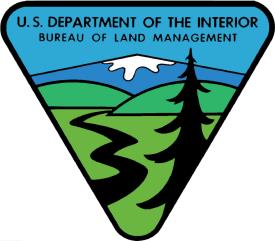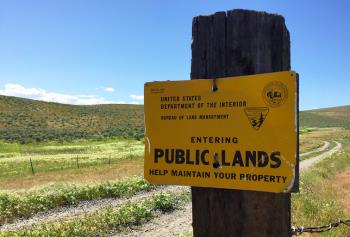 In a strategy reminiscent of the transfer of the USDA-Economic Research Service from DC to Kansas City, the Bureau of Land Management is relocating employees this summer to a western location. According to an article by Rebecca Beitsch in The Hill on March 5th 25 employees will work at the new headquarters in Grand Junction, CO. and 150 additional workers would be dispersed among other western locations. Eighty employees have agreed to move but eighty-seven in the DC office have indicated that they will resign and eighteen previously left the Department of Interior after the plans for the relocation were announced.
In a strategy reminiscent of the transfer of the USDA-Economic Research Service from DC to Kansas City, the Bureau of Land Management is relocating employees this summer to a western location. According to an article by Rebecca Beitsch in The Hill on March 5th 25 employees will work at the new headquarters in Grand Junction, CO. and 150 additional workers would be dispersed among other western locations. Eighty employees have agreed to move but eighty-seven in the DC office have indicated that they will resign and eighteen previously left the Department of Interior after the plans for the relocation were announced.
The move was criticized by retirees from the Agency and also by Democratic lawmakers who predicted that career employees with experience would leave the Agency.
Interior Secretary David Bernhardt told a Senate Committee with oversight on Wednesday March 6th that the Agency would find qualified candidates to replace those who have resigned. A retired senior administrator Steve Ellis stated “the relocation removes the Bureau of Land Management from the direct influence in the Nations capital and would critically weaken the Agency’s ability for career leadership and their staff to collaborate across disciplines and work closely with other key Agencies.” He added “the Administration is solving a problem that does not exist while creating new ones”.
 Chairman of the House Natural Resources Committee Rep. Raul Grijalva (D-AZ) stated, “the Trump Administration is destroying the Bureau of Land Management by mistreating its staff and politicizing its mission and then lying to Congress and the public about the damage it is causing. This is what happens when you put fossil-fuel industry lobbyist and anti-public land extremist in charge of government Agencies”.
Chairman of the House Natural Resources Committee Rep. Raul Grijalva (D-AZ) stated, “the Trump Administration is destroying the Bureau of Land Management by mistreating its staff and politicizing its mission and then lying to Congress and the public about the damage it is causing. This is what happens when you put fossil-fuel industry lobbyist and anti-public land extremist in charge of government Agencies”.
The Department of the Interior believe that relocation of the Bureau will improve services since most of the land administered by the Agency, 250 million acres in extent , is located in western states. The Bureau is charged with managing recreation, grazing and energy production on public land estimated to cover one eighth of the Nation’s land area.